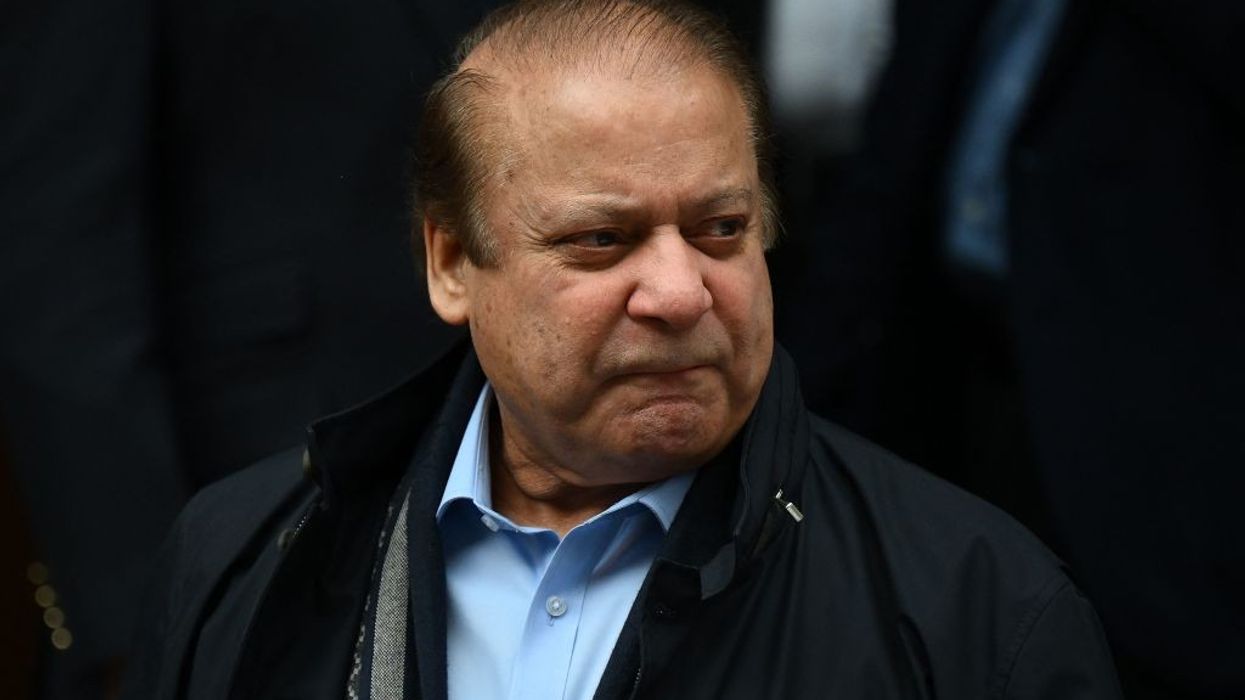PAKISTAN’S Supreme Court has upheld a controversial law seeking to curtail the powers of the chief justice but barred its retrospective application.
The law upheld by the majority of judges, including the sitting chief justice, deprived the chief justice of forming benches for different cases as the new law provided that a committee of the chief justice and two senior judges would form benches.
The law also provided the right of appeal in the cases decided through suo motu notices which was not available previously. The bench by a majority of nine to six upheld the part of the law to grant the right of appeal.
The verdict is a blow to former prime minister Nawaz Sharif, who is scheduled to return to Pakistan on October 21 ending his four-year-long self-imposed exile in the UK, as his chances of appealing against the disqualification are dashed.
A full court bench led by Chief Justice Qazi Faez Isa announced the reserved judgment after the completion of a hearing of multiple petitions challenging the Supreme Court (Practice & Procedure) Act, 2023.
In a split verdict, the court upheld the law with 10 judges supporting it while five others opposed it and rejected all petitions against it.
However, it rejected the application of the law to the past cases by a narrow majority of eight to seven.
The law was passed by the previous parliament in April with the backing of the then government of Shehbaz Sharif to curtail the powers of the chief justice regarding taking suo motu action.
The petitioners smelled a rat in the attempt as the government was wary of then chief justice Umar Ata Bandial who was accused of having a soft corner for former prime minister Imran Khan.
After the law was challenged, an eight-member bench led by Bandial barred the government from implementing the law until the petitions challenging it were decided.
The incumbent chief justice, after taking the oath of office on September 19, formed a full court bench to hear the challenge, which held five hearings before concluding the process and reserving the verdict.
Earlier, the chief justice remarked that parliament was not an enemy of the Supreme Court and both institutions could function simultaneously, while attorney General mansoor Usman Awan in his final arguments supported the law. Parliament has given the judiciary its independence but has also not limited its right to legislate, Awan said.
Sharif, 73, stepped down as the country's prime minister in 2017 after he was disqualified for life from holding public office by the Supreme Court for not declaring a receivable salary. He lived in London from 2019 after the Lahore High Court granted him four-week permission allowing him to go abroad for his treatment.
The Pakistan Muslim League-Nawaz (PML-N) supremo was serving a seven-year imprisonment at Lahore's Kot Lakhpat jail in the Al-Azizia Mills case before he was allowed to proceed to London on "medical grounds".
In 2020, an accountability court declared him a proclaimed offender in the Toshakhana vehicles case. He is also accused of obtaining luxury cars from the treasury house by paying just 15 per cent of the price of these vehicles.
He was convicted in the Al-Azizia Mills and Avenfield corruption cases in 2018.
(PTI)
Pakistan Supreme Court upholds law curtailing chief justice’s powers
The verdict is a blow to former prime minister Nawaz Sharif as his chances of appealing against his disqualification are dashed




